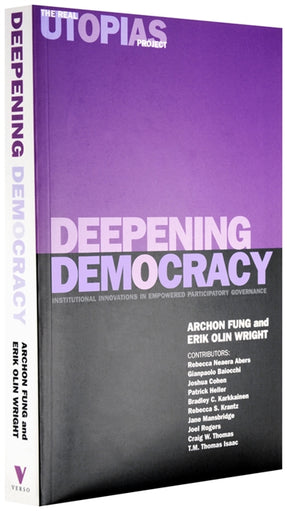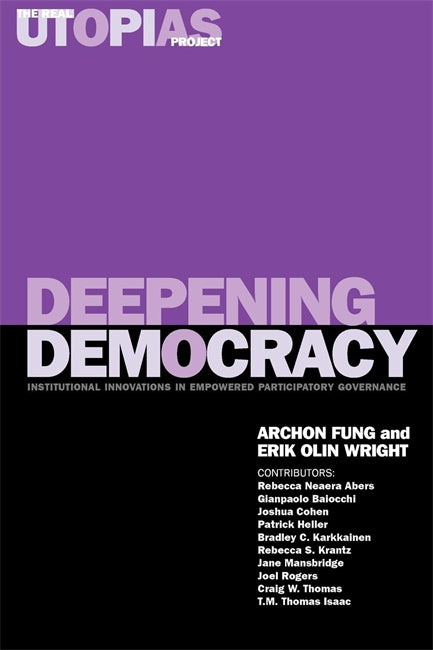
Deepening Democracy:Institutional Innovations in Empowered Participatory Governance
-
Sale price $29.95
Add to cart
Experiments in deliberative democracy, from Chicago to Kerala
The institutional forms of liberal democracy developed in the nineteenth century seem increasingly ill-suited to the problems we face in the twenty-first. This dilemma has given rise in some places to a new, deliberative democracy, and this volume explores four contemporary empirical cases in which the principles of such a democracy have been at least partially instituted: the participatory budget in Porto Alegre; the school decentralization councils and community policing councils in Chicago; stakeholder councils in environmental protection and habitat management; and new decentralised governance structures in Kerala. In keeping with the other Real Utopias Project volumes, these case studies are framed by an editors’ introduction, a set of commentaries, and concluding notes.
Reviews
As we lose sight of alternatives, there is no more important political and theoretical task than to develop real utopias, real in that they are based on existing institutional experiments, utopian in that they challenge ruling ideas of the epoch. In Deepening Democracy, the latest volume in the Real Utopias series, Archon Fung and Erik Olin Wright have brought together cases of what they call ‘empowered participatory governance,’ cases in which popular political participation becomes a vehicle for equity and efficiency. From Chicago public education to panchayat reform in Kerala, from habitat conservation in the United States to participatory budgeting in Porto Alegre, we have case studies that enable Fung and Wright to think through the practical problems of real democracy. This is an inspirational political critique but at the same time a program for critical politics.
Erik Wright has made a towering contribution to the thought of the left over a quarter of a century. This arises from his own intellectual contribution ... but also from his tireless work in identifying issues, bringing people together, and encouraging them to publish their results.
